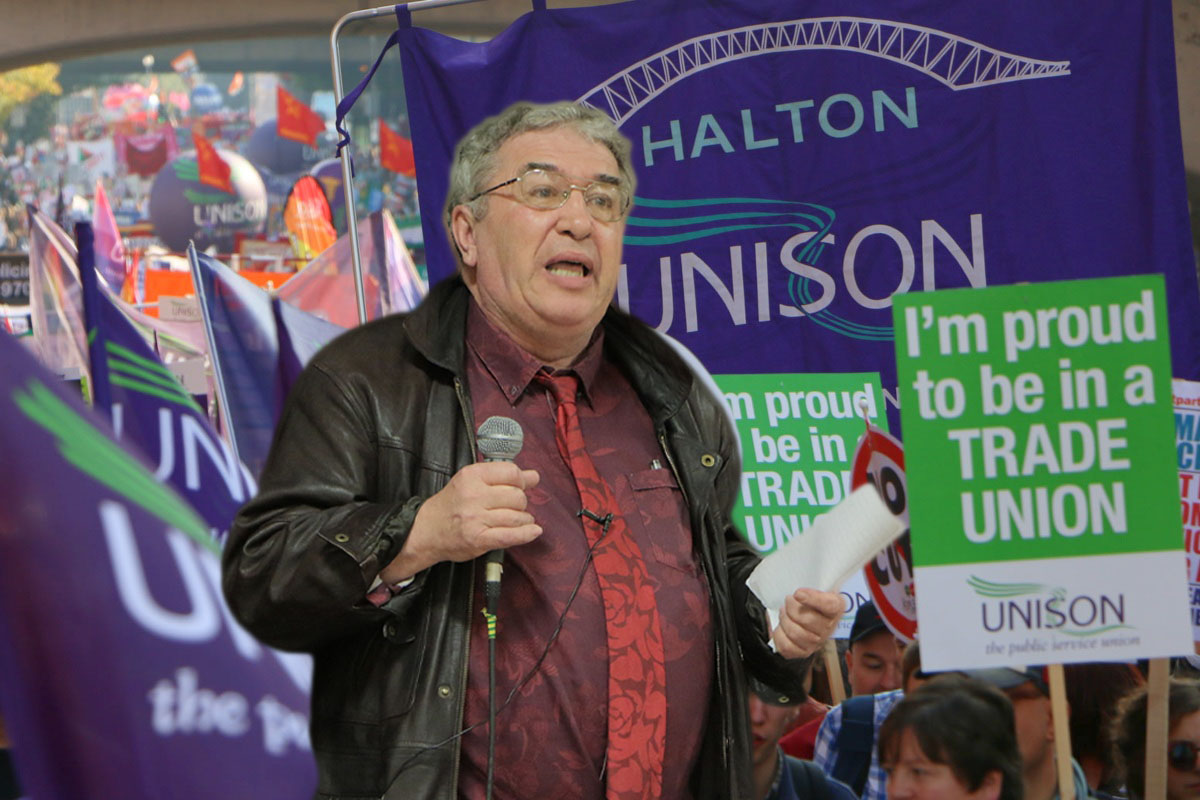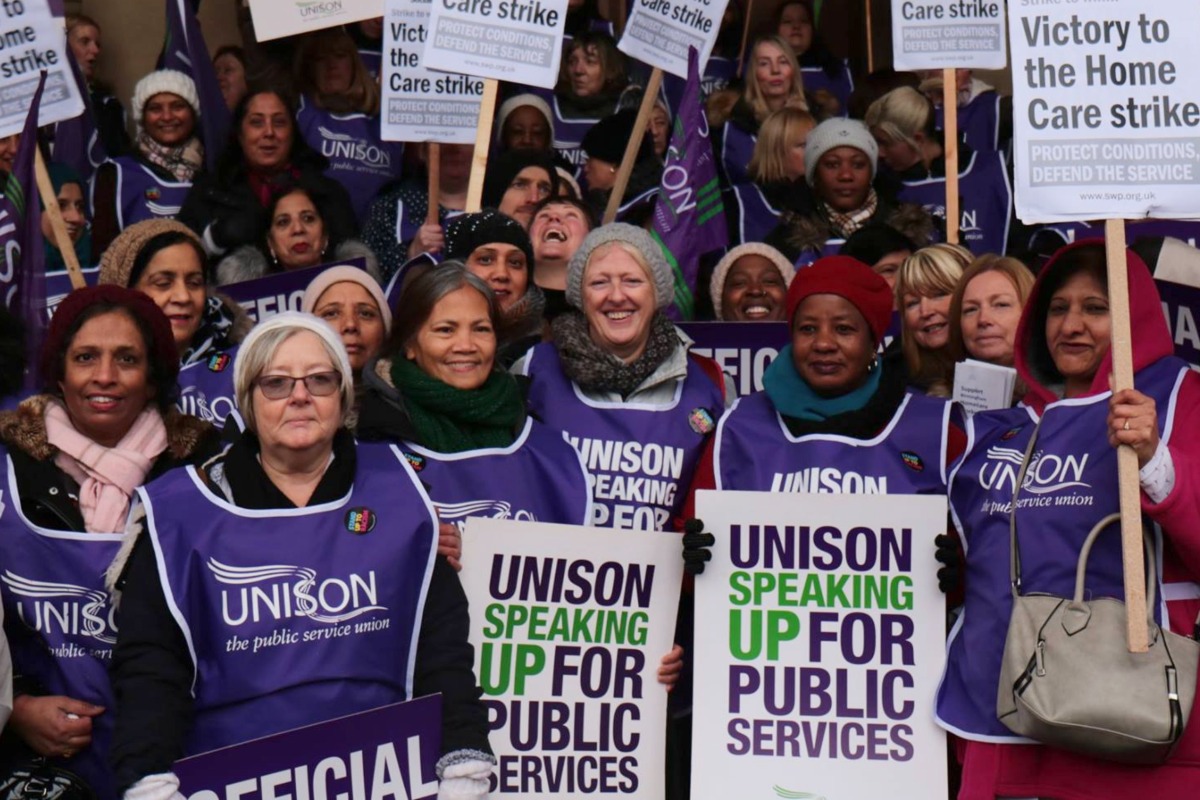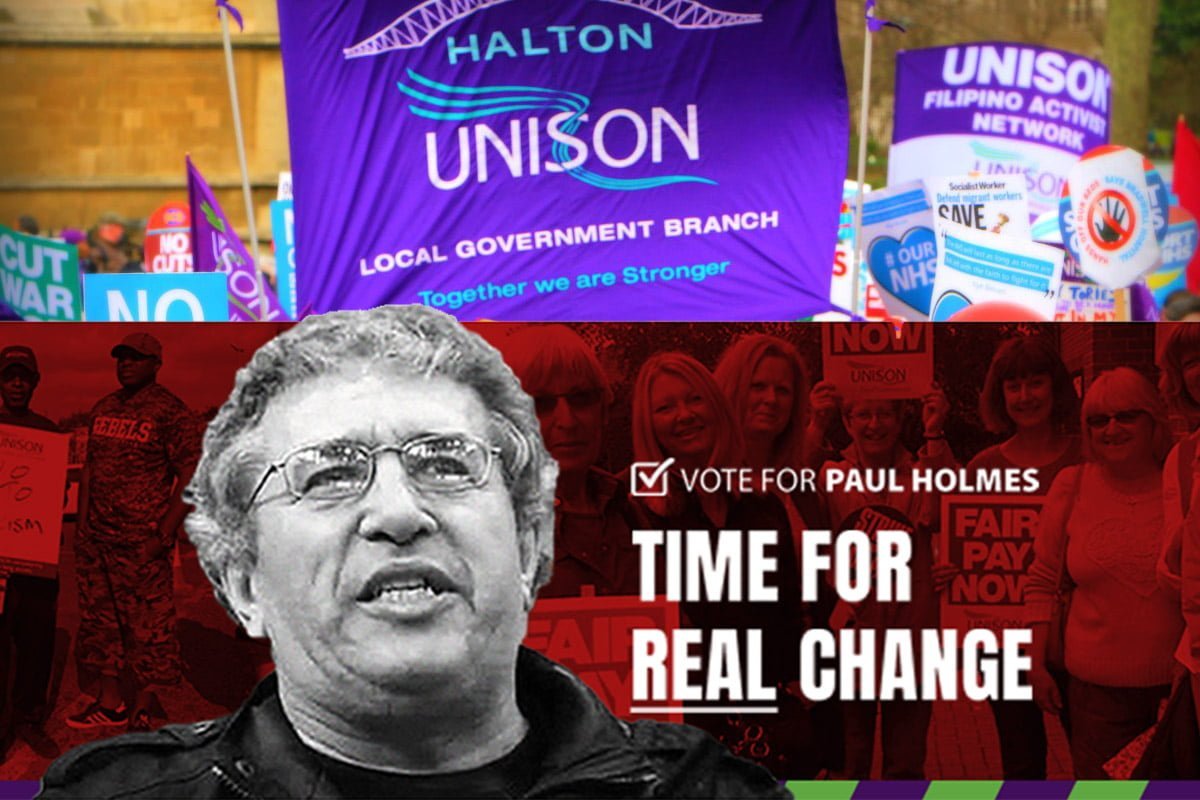The race to replace Dave Prentis as Unison general secretary is well underway. Paul Holmes is the main rank-and-file candidate. We spoke to Paul about his campaign, which has been enthusiastically received by members across the union.
Paul Holmes is the clear grassroots candidate in the contest for Unison general secretary. He has gained strong support from across the union in his bid to unseat the right-wing bureaucracy, receiving over 100 nominations from branches around the country.
We recently caught up with Paul to discuss his campaign to be Unison general secretary, asking him about why he is standing, and what the way forward is for the labour movement.
With the ballot opening at the end of this month, we urge union activists to rally behind Paul, in order to ensure a victory for the left.
 Socialist Appeal: Unison is often said to be a lay-led union. You’re generally regarded as a grassroots candidate, and have made this a cornerstone of your campaign. Can you tell us a little bit about your history in the union?
Socialist Appeal: Unison is often said to be a lay-led union. You’re generally regarded as a grassroots candidate, and have made this a cornerstone of your campaign. Can you tell us a little bit about your history in the union?
Paul Holmes: To stand for general secretary you must have been a Unison member for more than five years, or a Unison employee for the same period. In the five general secretary campaigns so far, even though employees only make up 0.001% of the total base of the union, they make up 100% of those who have been elected to the position of general secretary. So by definition, the 99.999% of lay members have never provided a general secretary in a union that prides itself on being lay member led.
I’ve been a steward and a member of Unison for more than 40 years. I’ve been branch secretary in Kirklees Unison, one of the ten biggest branches (out of 830) for more than 30 years. And I’ve been elected onto the national executive more than seven times, for a total of 13 years. But I’ve never been an employee of the union – I’ve always been a lay member.
SA: A grassroots left challenger could shake up Unison enormously. Could you lay out some of your key policies for our readers?
PH: These are my five pledges:
- Open democracy – Every decision the union makes, you’ll know in advance how we’re making it, who’s making it, and we’ll report it back.
- A worker’s wage – I currently earn £32,000 a year with the council. But the salary of the general secretary (with combined benefits) is over £130,000. My view is that I should receive the same wage as if I were at work.
- Leadership – I think leaders should be on the front foot when it comes to battles. As trade union leaders, we should ‘fight our weight’, as we say.
- I want to be an inclusive leader – We’ll set up a leadership school, so that anyone with commitment, talent, and enthusiasm is encouraged to get involved across all sections of the union.
- Finally, I’ve pledged that 50% of all union income should go to the branches. The union only consists of branches and members. All the rest – national, regional, welfare, legal, etc. – is just support for those branches and members. 90% of the work is in the branches. And that’s where the resources should go.
Here are my pledges to all members – if you want real change in #UNISON vote #Paul4GenSec #TheMembersCandidate https://t.co/oefDmTvnvw
— Paul Holmes #Paul4GenSec (@Paul4GenSec) October 2, 2020
SA: The Tories are preparing a fresh wave of austerity measures, through which our class will be asked to pay for the current crisis. How do you feel Unison should respond to the inevitable attacks on public services?
PH: The attacks have already started. Winston Churchill once said: “Don’t waste a good crisis.” They used to call these tactics dismissal and re-engagement. But now they call it fire and rehire. The proposals at Tower Hamlets council will become the music of the future at many public sector employers.
The University of Sheffield Unison branch has just fought off such proposals. And a variation of these proposals are now being threatened at the University of South Wales, where the university wants to appoint new staff on worse terms and conditions than existing staff. This would inevitably mean, in turn, worse terms and conditions then being imposed on existing staff.
Unison needs to concentrate on organising to fight these threats.
SA: Unison is also a large component of the TUC. Given the attacks to come, what role could a revitalised Unison play in steering the TUC towards defending its members and organising workers across Britain?
PH: One of the changes I would like to see is for Unison to stop referring to other trade unions as ‘competitor’ unions. If the TUC is to successfully resist these forthcoming attacks, then it must do it on the basis of joint trade union action.
In the NHS, for instance, there are 15 recognised unions. And if we are to meet our members’ current pay aspirations, then that can only be done with a unified fight.
 SA: Under Keir Starmer, Labour is turning to the right, at a time when the whole capitalist system is plunging into another huge crisis. What role can Unison play in fighting for socialist policies?
SA: Under Keir Starmer, Labour is turning to the right, at a time when the whole capitalist system is plunging into another huge crisis. What role can Unison play in fighting for socialist policies?
PH: As a trade unionist and a socialist, I see myself as a trade unionist in the Labour Party. I would want us to make open, transparent, and democratic decisions – decisions that carry the policies of our 1.3 million members from the union into the Labour Party.
For too long, the traffic has been the other way. I would want to activate the thousands of Labour Party members and voters in Unison, encouraging them to get involved in Labour at every level.
I don’t want to get involved in pantomime games where the agenda is set by the right-wing media. Let’s put to the electorate the popular policies contained in the 2017 & 2019 Labour manifestos, and expand them to end outsourcing and privatisation, as well as ensuring that society is run on behalf of the 99%, not the 1%. That’s how I see our relationship with the Labour Party.






